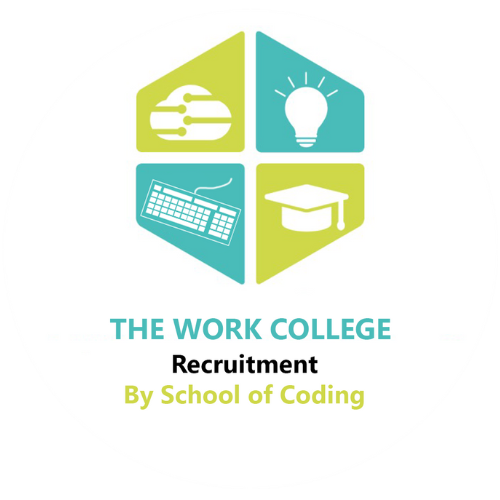Introduction
Creating a resume or CV may be daunting, especially when determining which abilities to highlight. Your CV is frequently the first impression employers have, and emphasising the appropriate talents can make all the difference in securing an interview. But with so many alternatives, how can you decide which abilities to prioritise? In this blog, we’ll go over the ten finest skills to include on a resume to not only attract attention but also boost your chances of success. Whether you’re an established professional or new to the workforce, these abilities can help you stand out.
1. Communication Skills
Effective communication is necessary in almost every job. Strong communication skills are essential for success in sales, IT, healthcare, and customer service. Employers need applicants who can properly articulate their ideas, collaborate with coworkers, and create relationships with clients.
Why is it important? Clear communication allows projects to run smoothly, avoids misunderstandings, and fosters teamwork.
How to Showcase It: Mention any previous experience with public speaking, draughting reports, or managing meetings.
Pro Tip: Include both written and spoken communication skills to demonstrate your overall competency.
2. Teamwork and Collaboration
Teamwork is more than a cliché; it is a skill that employers continuously regard as crucial. Most occupations demand teamwork, therefore being able to cooperate effectively is essential.
Why is it important? Companies prosper when teams work together peacefully to achieve common goals.
How to Showcase It: Provide particular examples of group work, team leadership, and collaborative problem-solving.
Fact: According to a LinkedIn survey, 86% of employers believe that teamwork is one of the most crucial abilities on a CV.
Also Read – Apprenticeship vs. Internship
3. Problem-Solving Skills
Employers seek workers who can approach issues with ingenuity and persistence. Problem-solving abilities exhibit your ability to analyse critically and overcome challenges efficiently.
Why is it important? Every work presents problems. How you approach and solve problems might influence your value to a firm.
How to Showcase It: Provide examples of how you identified a problem, devised a solution, and successfully implemented it.
Did you know? According to a World Economic Forum survey, problem-solving is one of the top five skills that employers will need in 2024 and beyond.
4. Adaptability and Flexibility
The workplace is continuously shifting, especially with the rise of remote work and new technology. Employers value applicants who can adapt to new difficulties, learn quickly, and respond to changing priorities.
Why is it important? Adaptable personnel can help firms handle uncertainty and remain competitive.
How to Showcase It: Highlight your experience with new tools or taking on duties outside of your job description.
Pro Tip: Give specific examples of how you’ve pivoted or adapted to changes, such as adopting new technology or handling unanticipated duties.
5. Technical Skills
Depending on the business, technical skills (sometimes called hard skills) may be the most significant aspect of your resume. These include job-specific skills such as coding, data analysis, graphic design, or familiarity with software such as Excel or Salesforce.
Why is it important? Many occupations today require specialised knowledge, and technical talents demonstrate your ability to do those duties.
How to Showcase It: List the specific tools, programs, or approaches you’re familiar with. If you’re a marketer, you may mention talents like SEO, Google Analytics, or social media management.
Quick Tip: Tailor your technical talents to the job requirements. If the company employs a specific software, explain your familiarity with it.
6. Leadership and Management Skills
Even if you’re not seeking for a management role, demonstrating leadership characteristics can help you stand out. Leadership qualities demonstrate your ability to take initiative, motivate a team, and make decisions.
Why is it important? Leadership is valuable at all levels of an organisation because it demonstrates readiness for higher responsibilities.
How to Showcase It: Mention occasions when you led initiatives, trained new personnel, or took leadership in a difficult situation.
Fact: Gallup revealed that organisations with highly engaged leadership teams outperform competitors by 147%.
7. Time Management
In today’s fast-paced professional situations, the ability to manage time effectively is critical. Employers seek somebody who can manage many responsibilities while maintaining quality.
Why is it important? Time management skills guarantee that deadlines are met and work is completed efficiently, without exhaustion.
How to Showcase It: Give examples of how you’ve effectively managed projects, fulfilled tight deadlines, or balanced competing objectives.
Pro Tip: Use action verbs such as “organised,” “prioritised,” or “coordinated” to demonstrate your time management abilities.
8. Emotional Intelligence (EQ)
Emotional intelligence is the ability to understand and control one’s emotions while recognising and influencing the emotions of others. It’s a soft skill that’s growing more valuable in the workplace, especially for leadership positions.
Why is it important? Employees with high EQ are better able to deal with stress, cooperate efficiently, and resolve workplace problems.
How to Showcase It: Give examples of how you’ve shown empathy, conflict resolution, or team-building abilities.
Did you know? TalentSmart discovered that 90% of top achievers possess excellent emotional intelligence.
9. Creativity and Innovation
In today’s competitive job environment, employers prefer employees who can think outside the box. Creativity isn’t just for artists; it’s also important in sectors like marketing, product development, and accounting.
Why is it important? Innovative ideas may propel a firm forward, solve challenging problems, and set it apart from its competition.
How to Showcase It: Include examples of how you provided innovative ideas or methods that increased efficiency or resulted in positive outcomes.
Fact: According to a LinkedIn survey, creativity is the most sought-after soft skill among employers.
10. Attention to Detail
While seeing the big picture is crucial, paying attention to the smaller details is also essential. Attention to detail can help you stand out, especially in professions that need accuracy, such as finance, engineering, or quality assurance.
Why is it important? Employers respect those who can identify faults, ensure correctness, and maintain high work standards.
How to Showcase It: Mention initiatives in which precision and thorough review were critical to your success.
Pro Tip: When discussing your experience, make sure your resume is error-free—it’s your first opportunity to showcase your attention to detail!
Conclusion
In today’s competitive job market, having the correct set of skills on your resume is essential. The finest skills to include on your CV are a mix of hard and soft skills customised to the job you’re applying for. By incorporating the ten abilities listed above—communication, teamwork, problem-solving, flexibility, technical skills, leadership, time management, emotional intelligence, creativity, and attention to detail—you will stand out from the crowd and boost your chances of securing your dream job.
Frequently Asked Questions (FAQs)
What skills should I include on my resume if I’m just starting?
If you’re a new graduate or have little experience, prioritise transferable abilities like communication, teamwork, problem-solving, and adaptability. Highlight any internships, volunteer work, or school projects that illustrate these competencies.
How many talents should I include on my resume?
Aim for 5-10 talents. Make sure they are relevant to the position you are looking for. Too many talents can overwhelm the reader, but too few may make you appear underqualified.
Should I list soft or hard abilities on my resume?
Both! Soft skills such as communication and teamwork demonstrate how you will fit into a company’s culture, whereas hard skills exhibit your ability to complete job-specific duties.








